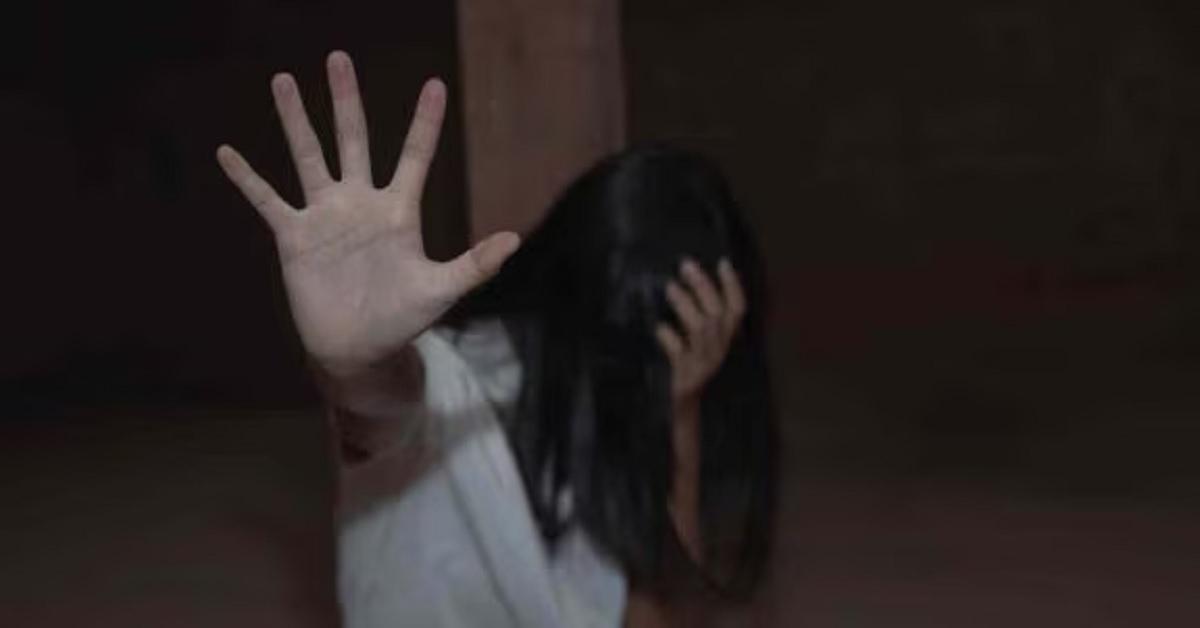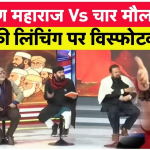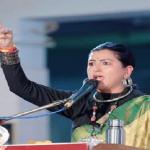
Escalating caste-based violence in UP: One Dalit man humiliated publicly, minor Dalit girl gang-raped Dalit communities in UP demand justice and accountability in the face of caste discrimination
09, Oct 2024 | CJP Team
Uttar Pradesh, a state that has witnessed repeated incidents of violence and discrimination against Dalit communities, has again come under the spotlight with two recent horrific crimes. Two recent incidents in UP have exposed the grim reality of caste-based violence and discrimination against Dalits, shedding light on the deep-rooted vulnerabilities that marginalised communities continue to face. The tragic suicide of a 47-year-old Dalit farmer in Kasganj, allegedly prompted by public humiliation at a local Ram Lila event, speaks to the psychological toll of systemic discrimination and the societal pressures that can lead individuals to despair. Meanwhile, a 14-year-old Dalit girl from Bulandshahr district has become a victim of horrific sexual violence, enduring repeated assaults at the hands of two upper-caste men who exploited her vulnerability and used threats to maintain their silence.
These incidents not only highlight the urgent need for systemic reforms and accountability but also reflect the pervasive caste biases that continue to manifest in violence and discrimination. As communities rally for justice, these cases serve as a clarion call to confront the cultural and institutional barriers that allow such atrocities to occur, demanding immediate action to protect the rights and dignity of Dalit individuals, particularly women and children.
CJP is dedicated to finding and bringing to light instances of Hate Speech, so that the bigots propagating these venomous ideas can be unmasked and brought to justice. To learn more about our campaign against hate speech, please become a member. To support our initiatives, please donate now!
Incident 1:
In the first case, a 47-year-old Dalit farmer named Ramesh Chand allegedly died by suicide in his home in a Kasganj village on October 7, a day after he was forcibly removed from a Ram Lila event. According to the report of The Indian Express, spectators at the event complained that Ramesh had been standing too close to the stage, and some alleged that he might have been intoxicated. As a result, police personnel forced him out of the event, which reportedly caused Ramesh immense distress.
As per multiple media reports, Chand was allegedly kicked, punched, and humiliated by local policemen. According to Ram Rati, Ramesh’s wife, he attended the Ramlila around 9 PM on Sunday and sat on an empty chair. His presence on the chair angered the event organisers, who then called constables Bahadur and Vikram Chaudhary to “remove Chand.” The officers reportedly assaulted him brutally under the organisers’ instructions, using casteist slurs as they did so. Ram Rati recounted that the officers pulled a gamcha (a traditional cloth) around Ramesh’s neck, threw him to the ground, and kicked and punched him.
In a state of despair, Ramesh pleaded with the bystanders to understand what he had done wrong, but received no response. He rushed home to tell his wife about the humiliation he suffered and subsequently went to his room. Tragically, Ram Rati discovered her husband hanging from the ceiling the next morning. Ramesh Chand was a farmer, survived by his wife and their four minor children, including two daughters.
Following his death, family members and members of the Dalit community staged a protest on Monday, demanding accountability for the officers involved. In response to the escalating tensions, a substantial police presence was deployed to the area. Ramesh’s body has been sent for a post-mortem examination, and senior police officials have initiated an investigation into the incident. The protests were called off only after senior police officials intervened, and two constables involved in the incident were transferred to Police Lines.
Kasganj Circle Officer Achal Chauhan confirmed that the post-mortem report indicated death by hanging, with no signs of external injuries. However, Chauhan added that the exact motive behind the suicide remains under investigation.
Additional Superintendent of Police Rajesh Bharti had also commented on the incident, stating that Ramesh had climbed onto the stage in an intoxicated state and had been removed at the request of the organisers and spectators. He added that Ramesh returned home safely, and by 6 AM on Monday, he was found hanging in his house.
Meanwhile, SP Chief Akhilesh Yadav has condemned the ruling BJP government, accusing it of promoting a culture of humiliation against Dalits. In a statement, Yadav expressed grief over the incident and criticised the “hegemonic mind-set” fostered under the current government, particularly towards the Dalit community.
Shocked and traumatised after allegedly being kicked, punched and humiliated by some policemen for sitting on a chair at the local #Ramlila, a 48-year-old #Dalit man went home and hanged himself to death at #SalempurVivi village under #Soron police station of #Kasganj district,… pic.twitter.com/tVPlEHmIs1
— Hate Detector 🔍 (@HateDetectors) October 8, 2024
Incident 2:
In a separate and equally tragic incident, a 14-year-old Dalit girl from a village in Bulandshahr district was allegedly gang-raped by two men from the upper caste community. The accused, Naresh Singh and Harvindra Kumar, who work as drivers, reportedly assaulted the girl over the course of several weeks, offering her Rs. 100 at times to remain silent as per a report of Times of India. The crime came to light on October 5, when the girl’s mother discovered the money in her school bag and questioned her. The girl then revealed the harrowing details of how the men had first assaulted her two weeks prior and had continued the abuse, threatening her to keep quiet.
Following the family’s complaint, an FIR was registered under relevant sections of the law, including the SC/ST Act. Both accused were arrested, and the girl was sent for a medical examination, which confirmed the assault. Her condition has been reported as stable, and an investigation into the case is ongoing.
Circle Officer (Sikandrabad) Purnima Singh stated on October 8 that following the family’s complaint, an FIR was lodged against the two accused, Naresh Singh and Harvindra Kumar, both in their 30s, under BNS Section 70 (2) (gang rape) and Section 3 (2) (v) of the SC/ST Act. Singh added that the girl’s father had passed away a few years ago due to illness, leaving her mother, who works as a daily wage labourer, to support the family.
Both accused, who work as drivers, reside in the same locality as the survivor. The girl was promptly sent for a medical examination, and her condition is reported to be stable. An investigation into the matter is currently underway.
#Horrific A 14-year-old Dalit girl from Bulandshahr was repeatedly gang-raped by two caste Hindu men, accused Naresh Singh and Harvindra kumar arrested. pic.twitter.com/QBarD4gzwf
— The Dalit Voice (@ambedkariteIND) October 9, 2024
Unpacking recent anti-Dalit incidents in Uttar Pradesh
Despite constitutional safeguards, Dalits often find themselves on the receiving end of brutal violence, often without swift or meaningful justice. Both the above-mentioned cases involve marginalised victims and highlight the ongoing struggle for dignity and safety within Dalit communities in the state.
Uttar Pradesh has become a focal point for the alarming rise in anti-Dalit incidents, showcasing a troubling trend of violence, discrimination, and systemic oppression against the Dalit community. This northern Indian state consistently reports the highest number of atrocities against Dalits in the country, reflecting the entrenched caste biases that continue to shape social dynamics.
Over the past two months, Uttar Pradesh has witnessed a shocking surge of anti-Dalit incidents that reveal the deep-rooted issues of caste-based violence and discrimination within society. In one tragic case, a Dalit school teacher named Sunil Kumar, along with his wife Poonam and their two young daughters, was brutally shot dead in Amethi on October 2, 2024. This horrific event unfolded just a month after the family had lodged a First Information Report (FIR) against an individual who had threatened them, indicating a growing sense of insecurity and helplessness among Dalit families in the state.
The violence against Dalits extends beyond the tragic murder in Amethi. In another alarming incident, a 16-year-old Dalit boy died after being allegedly tortured by police in Kheri. Picked up in connection with a theft case, he endured severe beatings while in custody. Despite being transferred to a hospital in Lucknow for treatment, he succumbed to his injuries shortly after, sparking protests from his family and the local community. Their demands for accountability reflect the frustration and anger felt by many against a system that seems to perpetuate such atrocities.
Additionally, the academic sphere has not been immune to the pervasive caste discrimination plaguing Uttar Pradesh. Shivam Kumar, a Dalit research scholar at Banaras Hindu University, experienced casteist harassment from a senior professor during an academic meeting. The professor’s violent outburst, which included throwing food and hurling slurs at Shivam, underscores the troubling reality that even educational institutions are rife with discriminatory practices.
Moreover, in Meerut, a Dalit student faced brutal treatment at the hands of a teacher who violently assaulted him with a pipe, using caste-based slurs in the process. Despite the boy’s obvious injuries and the family’s complaints, the teacher threatened him and dismissed the allegations, illustrating the widespread culture of impunity that allows such behaviour to persist.
These incidents are just a glimpse into the systemic violence and discrimination faced by Dalits in Uttar Pradesh. They reflect a broader societal issue that requires urgent attention and action to combat the ingrained prejudices that fuel these tragic events. The pattern of violence against Dalits, particularly in a state where caste dynamics are so deeply entrenched, demands a comprehensive response from both authorities and communities to ensure justice and equality for all.
A need for systematic change to address the cycle of violence against Dalits in Uttar Pradesh
Recently only, a union government report published by the Ministry of Social Justice and Empowerment had revealed that the state of Uttar Pradesh reported a staggering 12,287 cases accounting for 23.78% of the total 51,656 cases registered under the Scheduled Castes and the Scheduled Tribes (Prevention of Atrocities) Act, 1989, (PoA Act) in the year 2022. (The detailed report may be read here)
The vulnerability of Dalits in Uttar Pradesh is compounded by their marginalised status, which exposes them to targeted violence from upper-caste individuals. Attacks on Dalits are frequently motivated by a desire to reinforce caste hierarchies and exert control over marginalised communities. The pervasive culture of impunity allows perpetrators to act with little fear of legal repercussions, further entrenching the cycle of violence.
In addition to physical assaults, the economic and social marginalisation of Dalits in Uttar Pradesh further exacerbates their vulnerability to violence. Dalits often face discrimination in employment, education, and access to basic services, perpetuating cycles of poverty and exclusion. This systemic inequality fosters an environment where violence against Dalits is tolerated, and their grievances are often dismissed or minimised.
The response from law enforcement and the judicial system has been criticised for its inadequacy. Despite existing legal protections for Dalits, including provisions under the Scheduled Castes and the Scheduled Tribes (Prevention of Atrocities) Act, the implementation of these laws remains inconsistent. Police indifference, bureaucratic hurdles, and a lack of sensitivity towards victims contribute to a culture of impunity that emboldens perpetrators of anti-Dalit violence.
Addressing the escalating violence against Dalits in Uttar Pradesh requires a multi-faceted approach that encompasses legal reforms, community education, and social awareness initiatives. It is imperative to strengthen the enforcement of existing laws, ensuring that perpetrators are held accountable for their actions. Furthermore, fostering a culture of respect and equality, coupled with advocacy for the rights of marginalised communities, is crucial to dismantling the systemic barriers that perpetuate caste-based violence.
In conclusion, the ongoing violence against Dalits in Uttar Pradesh is a pressing issue that demands immediate attention. As society grapples with the realities of caste-based discrimination, it is essential to amplify the voices of Dalit communities, recognise their rights, and work collectively towards a future where equality and justice prevail for all. Only through sustained efforts can we hope to dismantle the structures that enable violence against Dalits and foster a more inclusive and equitable society.
Related:
MP diverted SC/ST welfare funds for cow welfare, atrocities against Dalits reported across country










